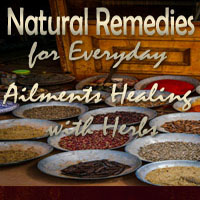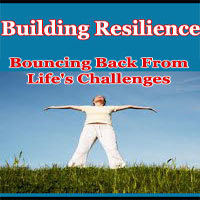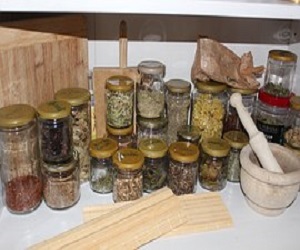


Nurturing The Soul

In the journey to holistic well-being, emotional health plays a pivotal role. Our emotions, whether positive or negative, have a profound impact on our overall quality of life. Essential oils, derived from nature's botanical treasures, offer a gentle yet potent means of nurturing emotional well-being. Let's explore how these aromatic essences can positively influence our emotional states.
The Essence Of Emotional Well-Being
Emotional well-being encompasses the ability to understand, express, and manage our emotions effectively. It's about finding a balance that allows us to navigate life's challenges with resilience, experiencing joy, and finding solace in moments of sorrow. Essential oils, through their natural aromatic compounds, can become powerful allies in this emotional journey.
Aromatherapy's Emotional Arsenal
Aromatherapy, the practice of using essential oils for therapeutic purposes, recognizes the intimate connection between our sense of smell and the limbic system, which governs our emotions. Certain essential oils have distinct properties that can help with various emotional states.
Lavender: Often hailed as the universal oil, lavender is known for its calming and soothing effects. It can help reduce anxiety, stress, and promote relaxation.
Citrus Oils (e.g., Orange, Lemon, And Grapefruit): These oils are uplifting and refreshing, making them ideal for boosting mood and alleviating feelings of sadness or melancholy.
Chamomile: Both Roman and German chamomile varieties are known for their ability to ease irritability, reduce anger, and promote a sense of inner peace.
Frankincense: Renowned for its spiritual and grounding properties, frankincense can aid in meditation and emotional healing, making it a valuable tool for finding inner serenity.
Managing Stress And Anxiety
One of the most prevalent emotional challenges in today's fast-paced world is stress and anxiety. Essential oils can be powerful stress relievers, helping to calm the mind and reduce the physical and emotional tension associated with these conditions. Creating a calming ambiance with oils such as lavender, chamomile, and frankincense can offer much-needed respite from the chaos of daily life.
Promoting Positive Emotions
On the flip side, essential oils can also foster positive emotions. Citrus oils are particularly adept at lifting spirits, increasing feelings of joy, and reducing stress. Whether diffused in the air, applied topically, or used in bath rituals, these oils can help cultivate a sense of happiness and emotional well-being.
A Holistic Approach To Emotional Health
Emotional well-being is an essential component of holistic well-being. Embracing essential oils as part of your emotional care regimen can be transformative. By incorporating these natural remedies into your daily life, you create an environment that supports emotional balance, resilience, and inner peace.
In the fast-paced and often demanding world we live in, nurturing our emotional well-being is crucial. Essential oils, with their ability to influence our emotions in a positive way, offer a holistic and natural means to achieve a more balanced and fulfilling emotional life. As you embark on your journey toward emotional well-being, remember that nature's essences can be your trusted companions, gently nurturing your soul along the way.






A Guide To Safe And Delicious Choices
 2. Call Ahead: If you're unsure about a restaurant's gluten-free offerings, it's a good idea to call ahead and ask about their gluten-free options. This can help you understand the level of awareness and accommodation the restaurant provides for gluten-free diners.
2. Call Ahead: If you're unsure about a restaurant's gluten-free offerings, it's a good idea to call ahead and ask about their gluten-free options. This can help you understand the level of awareness and accommodation the restaurant provides for gluten-free diners.
A Journey To Total Well-Being
 Harmonizing Mind, Body, And Spirit
Harmonizing Mind, Body, And Spirit
At the heart of holistic health is the idea that to lead a better life, one must attain harmony among the mind, body, and spirit. Achieving this balance is a transformative journey that touches every aspect of your life.
Nurturing The Mind
A healthy mind is a vital element of holistic health. Reducing stress, anxiety, and negativity is paramount. This can be achieved through mindfulness practices like meditation, deep breathing, and fostering a positive mindset. A balanced and calm mind is key to making better life choices.
Caring For The Body
Our physical well-being is inextricably tied to our overall quality of life. Nourishing the body with proper nutrition, regular exercise, and adequate rest is essential. A balanced diet rich in nutrients fuels the body, while exercise strengthens it, and rest allows it to recover and rejuvenate.
Nurturing The Spirit
Nurturing the spirit involves finding a sense of purpose and connection to something greater than ourselves. For many, this comes through religion, spirituality, or embracing the wonders of the natural world. It offers a deep sense of inner peace and resilience in the face of life's challenges.
The Path To Holistic Health
The journey to holistic health is highly personal and unique to each individual. It begins with self-discovery, an exploration of your true desires and sources of happiness. Setting clear intentions, understanding your values, and aligning your daily life with them is a crucial part of this process.
It also involves letting go of elements that no longer serve you. This could be unhealthy habits, toxic relationships, or sources of stress that hinder your well-being.
Elevate Your Culinary Skills In The Kitchen
 3. Master Basic Knife Skills
3. Master Basic Knife Skills
Knowing how to properly handle a knife is as important as having a sharp one. Learn essential knife skills like the claw grip to protect your fingers, and practice techniques like chopping, mincing, and julienning for precision in your cuts.
4. Control Your Heat
Understanding temperature control is crucial in cooking. Learn the difference between simmering, boiling, sautéing, and searing. Adjusting the heat appropriately can prevent overcooking, burning, or undercooking your dishes.
5. Taste As You Go
Taste your food as you cook. This allows you to adjust seasoning and flavors along the way. Don't be afraid to add more salt, pepper, or other seasonings if necessary. A balanced and well-seasoned dish is the hallmark of a great cook.
6. Keep Your Workspace Organized
A cluttered kitchen can lead to confusion and accidents. Keep your workspace tidy by cleaning as you go and returning items to their proper places when you're done with them. An organized kitchen will help you stay focused and efficient.
7. Get To Know Your Ingredients
Understanding your ingredients is crucial to successful cooking. Know the flavor profiles of herbs and spices, and learn how different ingredients interact with each other. This knowledge will allow you to create more harmonious and well-balanced dishes.
8. Use Fresh Ingredients
Whenever possible, use fresh ingredients. Fresh produce, meats, and dairy can make a significant difference in the taste and quality of your dishes. Seasonal and local ingredients can be especially flavorful.
 Mindfulness Meditation: Mindfulness meditation is a powerful relaxation technique that doesn't require an extensive time commitment. Just a few minutes each day can make a significant difference. By focusing on the present moment and being fully aware of your thoughts and feelings without judgment, you can reduce stress and enhance relaxation.
Mindfulness Meditation: Mindfulness meditation is a powerful relaxation technique that doesn't require an extensive time commitment. Just a few minutes each day can make a significant difference. By focusing on the present moment and being fully aware of your thoughts and feelings without judgment, you can reduce stress and enhance relaxation.
Deep Breathing Exercises: Deep breathing is a simple and quick relaxation method that can be practiced anywhere. Taking slow, deep breaths calms the nervous system, reduces stress, and promotes a sense of calm. Try inhaling deeply through your nose for a count of four, holding for four, and then exhaling for a count of four.
Progressive Muscle Relaxation: This method involves systematically tensing and then relaxing different muscle groups in your body. It helps release physical tension and promote relaxation. It can be done in a short amount of time and is particularly effective for those with a hectic schedule.
Visualization: Visualization involves mentally immersing yourself in a peaceful, calming place or situation. Close your eyes, and imagine a serene beach, a forest, or any location that makes you feel relaxed. Visualization can transport you to a tranquil mental space even during a busy day.
Short Breaks: Taking short breaks throughout the day is essential for busy individuals. Even a 5-10 minute break can provide a mental reset. Use this time to step away from your desk, stretch, take a short walk, or simply sit quietly to clear your mind.
Bridging Tradition And Science
 Evidenced-Based Herbal Medicine
Evidenced-Based Herbal Medicine
One of the most significant developments in modern herbal knowledge is the growing body of scientific evidence supporting the efficacy and safety of herbal remedies. Researchers are conducting clinical trials and studies to investigate the therapeutic properties of specific herbs, validating many traditional uses. For instance, herbs like St. John's Wort have demonstrated their effectiveness in treating mild to moderate depression.
Herbs In Complementary Medicine
Modern healthcare is increasingly embracing the concept of complementary medicine, where herbal knowledge is integrated into conventional treatments. Many healthcare practitioners recommend herbal supplements alongside conventional medications to enhance treatment outcomes and minimize side effects.
Holistic Health And Herbal Medicine
Herbal knowledge aligns well with the principles of holistic health. It recognizes the interconnectedness of physical, emotional, and mental well-being. Herbal remedies are often employed to address not only physical symptoms but also the root causes of ailments, which can include stress, poor diet, or emotional imbalances.
Herbs For Chronic Conditions
Herbal medicine is gaining recognition for its role in managing chronic conditions. Conditions like diabetes, hypertension, and arthritis can often be improved with the use of specific herbs. For instance, cinnamon has shown promise in helping regulate blood sugar levels in individuals with diabetes.
Natural Remedies For Mental Health
Herbs are increasingly used in the management of mental health conditions. Plants like lavender, chamomile, and valerian are valued for their calming and anxiety-reducing effects. They offer a gentler alternative to pharmaceuticals for individuals seeking natural solutions to anxiety, stress, and depression.
Safety And Regulation
As herbal remedies become more popular, it's essential to address safety and regulation. Many countries have regulatory agencies that oversee the production and sale of herbal supplements, ensuring quality and safety. Additionally, consulting with a qualified herbalist or healthcare practitioner is crucial to avoid potential interactions with medications and ensure proper dosing.
A Blueprint For Thriving In Adversity
 Resilience is not an innate trait; it is a set of skills that can be developed over time. At its core, resilience involves a combination of mental and emotional processes that enable individuals to cope with stress, adapt to change, and navigate difficult situations with grace. Here are some key aspects of resilience:
Resilience is not an innate trait; it is a set of skills that can be developed over time. At its core, resilience involves a combination of mental and emotional processes that enable individuals to cope with stress, adapt to change, and navigate difficult situations with grace. Here are some key aspects of resilience:
Emotional Regulation: Resilient individuals can manage their emotions effectively. They understand their feelings and have the tools to handle them in a healthy way.
Adaptability: Resilience is closely linked to adaptability. Those who are resilient are more open to change and can adjust their plans and strategies as needed.
Problem-Solving: Resilient individuals approach challenges with a solution-oriented mindset. They seek opportunities for growth and learning in difficult situations.
Optimism: Resilience is associated with a positive outlook. Resilient people can find the silver lining in adversity and maintain hope for the future.
Building Resilience Skills
Develop Emotional Intelligence: Start by enhancing your emotional intelligence. This involves recognizing, understanding, and managing your own emotions and being attuned to the emotions of others. Emotional intelligence provides a strong foundation for resilience.
 4. Potential Nutrient Deficiencies: One potential downside of a gluten-free diet is the risk of nutrient deficiencies. Many gluten-containing foods are fortified with essential nutrients like B vitamins and iron. When these foods are eliminated, it's crucial to find alternative sources to maintain proper nutrient intake.
4. Potential Nutrient Deficiencies: One potential downside of a gluten-free diet is the risk of nutrient deficiencies. Many gluten-containing foods are fortified with essential nutrients like B vitamins and iron. When these foods are eliminated, it's crucial to find alternative sources to maintain proper nutrient intake.
5. Reduced Inflammation: Some individuals report reduced inflammation when they go gluten-free. Gluten has been associated with inflammatory conditions, and eliminating it from the diet can potentially provide relief to those with inflammatory disorders like arthritis.
6. Better Skin Health: Skin conditions like eczema and psoriasis have been linked to gluten sensitivity. Going gluten-free may lead to improved skin health and the reduction of these skin issues.
7. Increased Energy: Eliminating gluten from the diet can lead to increased energy levels, as the body no longer has to deal with the inflammation and digestive distress caused by gluten consumption.
8. Balanced Blood Sugar Levels: A gluten-free diet may help maintain more stable blood sugar levels, which can be beneficial for individuals with diabetes or those looking to prevent diabetes.
9. Mindful Eating: A gluten-free diet often requires heightened awareness of food choices, label reading, and a more mindful approach to eating. This can lead to better dietary habits and long-term health benefits.